After the successful documentary about the peculiar film critic Óscar Peyrou (Searching for Oscar, 2018), which can be streamed on Filmin and was celebrated at several international festivals, Octavio Guerra has presented his latest work, I Had a Life (2023), at the 26th Thessaloniki Documentary Film Festival. The film, which had its national premiere at the Málaga Film Festival and has already been screened in cinemas, has thus had its international premiere at such a prestigious festival as the one held in this Greek city. Produced, like the rest of his work, by Elisa Torres and photographed by Carlos Aparicio, this documentary with social content focuses on homeless people in the city of Valencia (Spain). The people we ignore when we pass by them and don’t dare to look into their eyes, while they lie wrapped in blankets in the improvised space of an ATM, have names and surnames and stories as relevant as the protagonists of I Had a Life, whom Guerra has dared to name and restore their dignity, which seems hard to acknowledge. The excluded lives that we contemplate in his story are nothing more than the result of the difficulties of reintegration into the job market, addictions, and the obstacles to rebuilding a home of one’s own after a personal tragedy. The audience, who packed the two screenings of the documentary in Thessaloniki, was still left with questions, despite the long discussion with the director (and scriptwriter) and the producer, since Octavio Guerra’s approach and the particular situation of his protagonist aroused enormous interest among the public. Watching up close, for 71′, what we are used to looking at out of the corner of our eyes allows us to shed our prejudices, if we have any left, and recalibrate our capacity for empathy. It was particularly significant for the director to launch his film internationally here, since it was born in the Festival’s Agora, where the project was developed a few years ago.
We had the opportunity to interview the director of Holy Water (2013) in the legendary Warehouse C of the cultural complex that hosts the festival, after the first screening, and we shared his satisfaction with the response of the Greek public, which always assures us of high-level discussions. We began by enquiring about the genesis of a project spread over several years and its starting point: “I didn’t go looking for the story, but the story came to me somehow”. Octavio Guerra practised taekwondo with the coordinator of a social reintegration program, who encouraged him to show them his first film and give a talk as part of the project: “I showed them Holy Water, a film where the actors play themselves. It’s a documentary, but where the characters are in some way themselves. We met up again and on that occasion I showed them Chronicle of a Summer (Edgar Morin, Jean Rouch, 1961). That blew their minds because somehow they already saw something very authentic, also about work, more social, a more social critique. And then, between all of us, we saw the possibility of trying to do something together”.
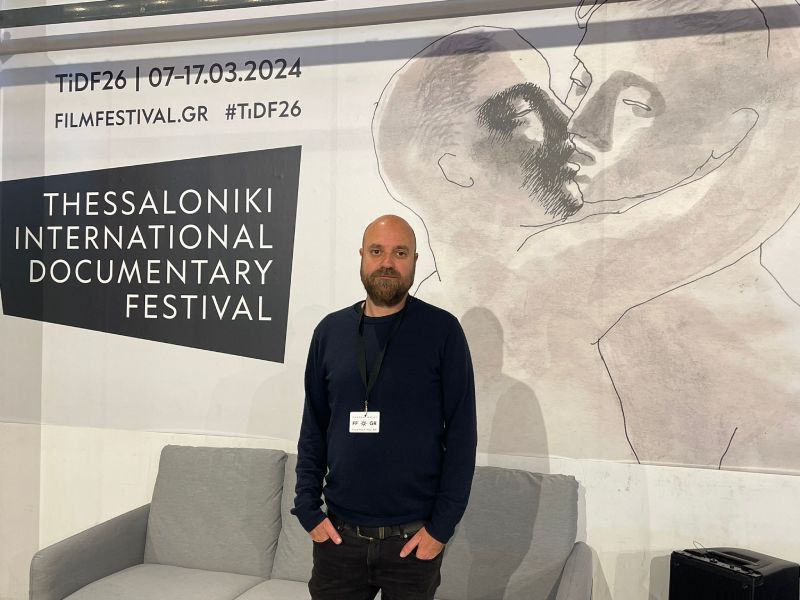
Octavio Guerra, director of I Had a Life. Photo © El Hype.
I Had a Life begins in a choral way, we meet the men who share a tutored flat, and we ask the director how he chose his protagonists: “Those two screenings that I mentioned served as a kind of casting, because that’s when the selection also began to sprout. They visualised how their character could be in the film, and the evolution towards a leading character was very organic, let’s say that this chorality began to fade away to focus on Jesús. The film has a lot of moments, it took a long time in his case, because from the first shot to the last, eight years passed. But those eight years didn’t work for us in the film, we had to cut them”. Those years included a pandemic and the difficulty of keeping track of its protagonist, “This film is a bit of a miracle, we worked with many characters and the figure of Jesús arrived. With him we got the story, the conflict, the criticism, what Jesús was, a very strong character, incomparable to the rest, who was not at his level. So we quickly turned to observation”.
The first part of the film functions as an introduction, as the context in which we understand the reluctance of a homeless person to prolong indefinitely a sheltered and dependent life. Jesús Mira’s personality is very particular and very clear, as Guerra shows from his first appearance, he is torn between the need to cover his material needs and the freedom to control his life, his timetable, and his work choices, however precarious they may be. There is a particularly striking scene in I Had a Life, which shows us without words this inner dilemma between maintaining coherence with certain values and compromising: “That long silence of Jesús, when he is faced with the dilemma of accepting to stay in the flat with rules that he cannot accept or to leave, arose just like that, in the moment, but it has much more meaning because his conflict has been placed in the first part. That silence takes on another dimension, and that silence came very early in the recording. We have a whole minute of silence and to make it work we had to develop a lot of the context and the conflict and the repetition of it in that loop that he doesn’t come out of”.
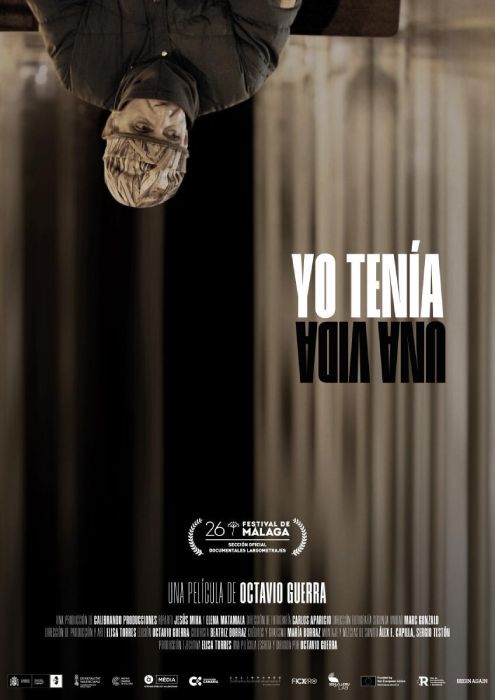
I Had a Life. Poster by © Milena Fontana.
This spiral with no exit is also shown graphically in other ways, “Visually we are also constantly surrounded by this loop. The Ferris wheel and the washing machine, for example, it’s like it always comes back to square one”. That minute is a tremendous cinematic find. “I’m tempted to look outside the window of the room where Jesús talks to the coordinator, to see if Carlos has moved the camera because the guideline was to try to record the sequence and when we saw that there was already a certain exhaustion, change the shot, because as you can’t repeat with Jesús, you can’t do a mise-en-scène. From my experience in documentaries, I have often realised that things happen the moment I pick up the camera, so I prefer to record and then choose. Luckily, Carlos didn’t move the camera and I lived that silence”.
In a documentary that portrays characters and over a very long period, the difficulties must have been greater than usual, for example losing track of the protagonist or achieving spontaneity, and the director confirms this: “Relevant to this is the fact that we filmed with an extremely small crew in which I do the sound simply because I need to do it. There was no room for more people with Jesús. Almost all the sequences are very intimate. And a third person could break that closeness. On the other hand, Jesús is a very difficult character. But those difficulties helped us creatively, because when they somehow put a barrier in your way, you have to find a solution and that solution is very creative. The interesting thing was that we were always on the lookout because we knew perfectly well that we couldn’t repeat, that he was a very sensitive man. We had to rethink a lot. When filming, we asked ourselves, where are we going to put ourselves? Let’s put ourselves in Jesús’ shoes, to know what he would do, and from there we designed the sequence, and on the other hand, we found the meaning we could get from that kind of shot. For example, we shot a lot at the beginning through the glass, but throughout the film, as he doesn’t let us get closer, we get closer. There is a certain distance at the beginning, but a kind of method developed”.
An important character in I Had a Life is Elena Matamala, the social worker, very close to Jesús, who at the same time is working on her thesis and we even get to see how she presents it. She is a woman who wonders how to maintain empathy and professional distance at the same time, something that had to be replicated in the filming, as Octavio Guerra confirms: “Well, that’s difficult because Jesús, in the end, was a character who often put us between a rock and a hard place and, in fact, in this process we lost him two or three times. And as I was saying, this film is a miracle because in the end, over the years, we were finding him again, we were losing him, always by chance. And then in the end, it was he who came looking for us, not us. So, he would ask us to keep recording, but you know that he could play a trick on you. But we still came back, because the story was stronger. We cared more about the possibility of telling it than the possibility that he would leave us stranded again. The moment we decided on financing, dedication, justifications for recordings, etc., that’s when we told Jesús this has to happen because now we enter a field where we’re committed”.
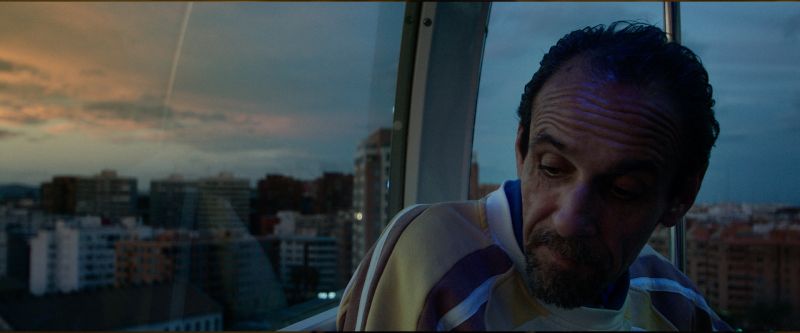
In such a long story it’s not easy to reach an end, so we asked Guerra how to know when it’s time to stop filming: “We have all the residential part, the program, the work… and then the film is a bit of a puzzle where Elena helps us because she provides us with the part that Jesús doesn’t tell us. Her role is important because she positions the film in terms of information and even a little in terms of aesthetics because she also has the possibility of planning the action, she balanced the film a little and that austerity that it could have because Jesús doesn’t let us repeat. We had to be attentive to the shot. As for the ending, it has to be dramatically important. There was a little debate there, and the decision had to be mine: to end with a happy ending or with a defeat. In the end, we used the tools that cinema gives you to create that ending, we believe that the audience has to take away a defeat as well, to go out with a bad feeling…”. Jesús’ life is like a rollercoaster of small triumphs and big defeats, so the director had to choose to stop his story at one of those stops that, like the Ferris wheel, take his protagonist away from the final destination. “I think that if we had done it differently, Jesús himself would have said to us: You guys have made a mistake“.
I Had a Life is courageous because its gaze is revealing of a reality that is more complex than it seems, and which escapes us because we live in parallel with those whom the social body expels; it questions us about social normality and the question of whether the right to welfare respects our individuality; of course, the discussion is never-ending.

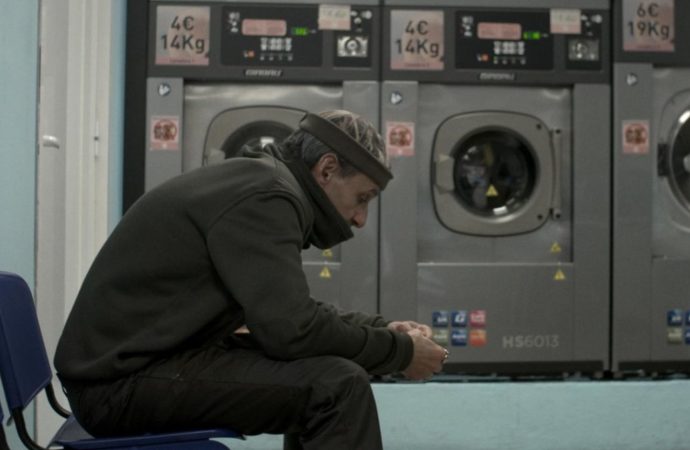


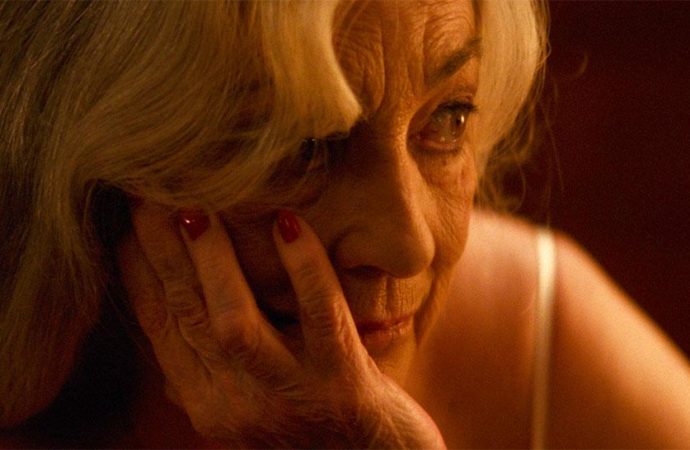
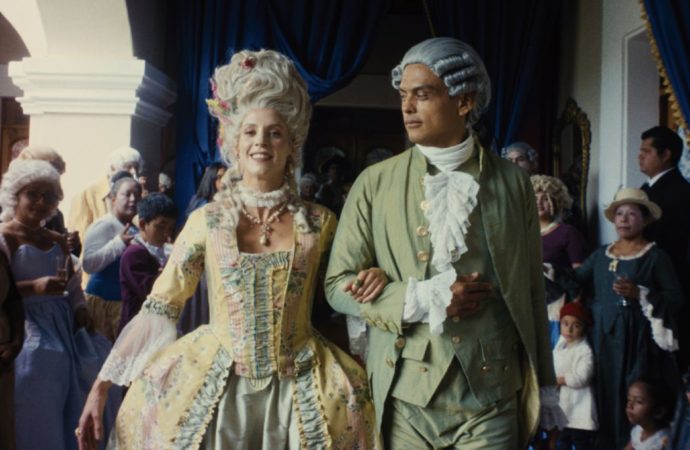


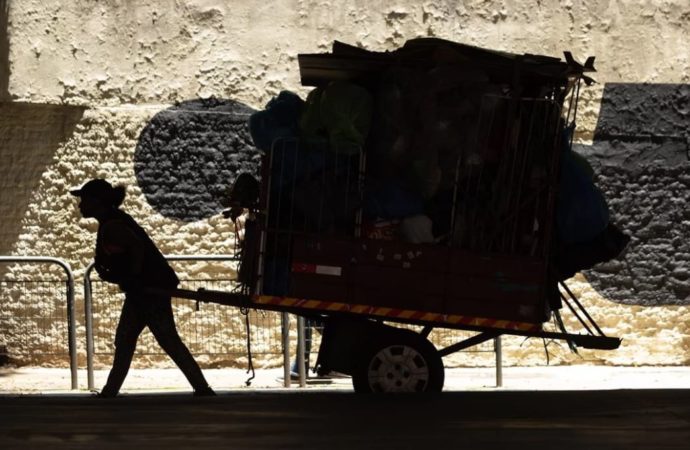
No one has posted any comments yet. Be the first person!